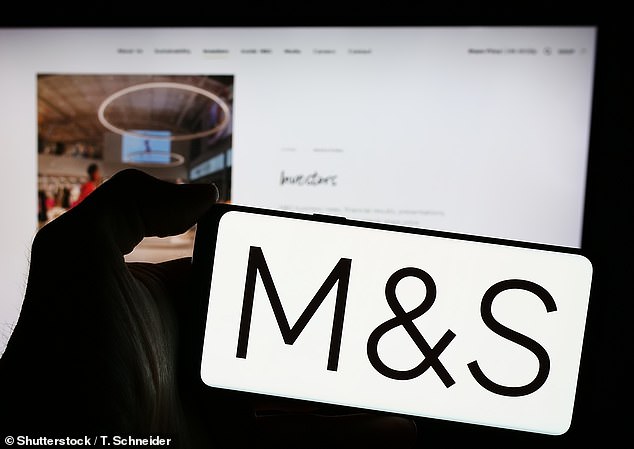Table of Contents
Tony Hetherington is the star researcher at Money’s sister title Financial Mail on Sunday. He specializes in fighting readers’ corners, revealing the truth hidden behind closed doors, and achieving victories for those who have run out of money. Find out how to contact him below.
AT writes: I am sending you details of a 7.125 per cent interest offer on a Marks & Spencer fixed rate bond as I am not sure about it.
Tony Hetherington replies: You smelled a rat…and yes, it’s pretty big.
They told him: ‘We are delighted to offer you an exclusive opportunity to earn a fixed 7.125 per cent return on your investment with the Marks & Spencer Fixed Rate Bond. Enjoy guaranteed monthly payments with the peace of mind that comes with the full protection of the Financial Services Compensation Plan.’
You were directed to the website marksandspencersaver.com for more information. It asked for your name, email address and phone number, and explained: “Our investment specialists will be in touch to help you secure a stronger financial future with confidence and ease.”
Scam: Fake Marks & Spencer fixed rate bond offered 7.125 per cent interest
Anyone who provided their details has been given even more reassurance about the safety of their savings, with a new email claiming the entire investment is backed by huge bank Citigroup. The email adds: “One of Citigroup’s dedicated advisors will contact you shortly to discuss your needs and guide you through next steps.”
This is explained in an email from account@cg-wealth-management.com, accompanied by an application form in what purports to be a Citi passbook, requesting a large amount of personal information, such as your home address. , date of birth, national insurance number and full bank details.
However, this is all a fraud. The fake M&S website was created on November 1, and the fake Citi Group email address followed on November 6.
M&S issued bonds paying 7.125 percent, but in 2007.
Scammers have disguised this to make the bonuses look like a new high-yield savings account.
On October 18, the Financial Conduct Authority (FCA) added a warning to its online list of more than 14,000 unlicensed investment firms.
He told the public to be careful with cg-wealth-services.com, which was posing as Citigroup. The FCA announced: “This is an unauthorized company using the data of a genuine FCA regulated company when offering products and services.”
If you do business with him, the regulator warned, you will lose the protection of the Financial Ombudsman and the compensation system.
Within a few days, the criminals had established themselves again, still posing as Citigroup, with a new website at cg-wealth-management.com. They also changed their phone number from 020 7971 1491, which the FCA revealed, to their new number, which I can reveal is 0203 488 5727.
As I write, the FCA still hasn’t caught up with the new Citigroup fake. Both fake websites were created through Squarespace, a major international domain provider that protects the privacy of its customers. And the new phone number is equally secret, using voice over Internet protocol services provided by a company outside the UK, so what appears to be a British number can actually be forwarded to anywhere in the world.
I asked the FCA if it had tracked down the scammers and if it was planning any action on its website and phone providers. He didn’t answer. What is clear, however, is that scammers continue to circle around those whose role it is to stop them. Much tougher measures are needed. Scammers are not romantic Robin Hood figures. They are thieves.
If you believe you are a victim of financial irregularity, please write to Tony Hetherington at Financial Mail, 9 Derry Street, London W8 5HY or email tony.hetherington@mailonsunday.co.uk. Due to the large volume of inquiries, it is not possible to provide personal responses. Please only send copies of the original documents, which we regret cannot be returned.


